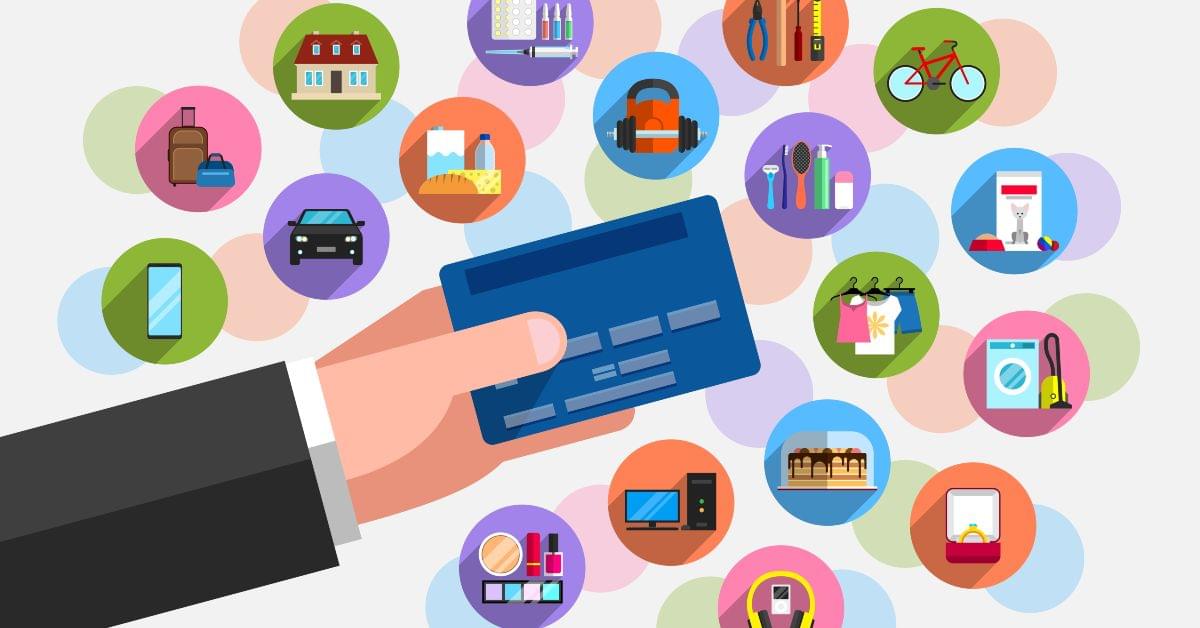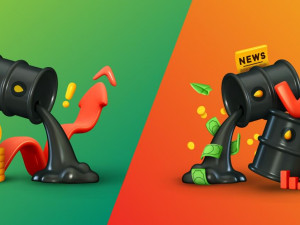
Despite many public reports in wake of the cost-of-living crisis, the UK has in fact managed to avoid a recession so far. Back in November, the Bank of England has stated that “it expects the coming recession in the UK to be the longest since records began in the 1920”.
However, as per the latest releases the UK economy, where the consumer has been unexpectedly strong during the worst cost-of-living squeeze in recent history, with GDP unexpectedly rising 0.1% in November as reported by Bloomberg.
This reading suggests a recession may be avoided until later this year as people continue to spend despite their economic struggles. Although economists had anticipated a small decline after growth in October, it looks as if people are finding ways to make their money go further in a challenging period.
In this article, we are looking at what the current data tells us about an incoming recession and its effect on consumer spending.

What is a recession?
A recession is defined as 'negative growth for two consecutive quarters'. Economic output can experience slowdown for two quarters, but it only qualifies for recession after two quarters of negative growth. However, if the economy immediately bounces back after two-quarters of negative growth, it is called a ‘technical recession’, something which happened in the United States in 2022.
Once a recession has started, wider economic impacts are usually seen as well, such as:
- An increase in unemployment rates
- Reduced international trade and investment
- Declining consumer spending
- A drop in house-prices
Impact of the current economic situation on different parts of the economy
Now we’re facing a looming recession, how have different parts of the economy been holding up so far?
Job Market
The UK jobs market had been relatively resilient following the covid period, aided by government schemes keeping businesses afloat and preventing layoffs. Hence, the job market is currently continuing to be unexpectedly strong.
The recent ONS Labour Market figures have confirmed what businesses have already been experiencing - a “relentlessly tight labour market hindering their regional and national growth”.
However, the start of 2023 brought a decline in online job postings, indicating that the strength of the job market is waning in the face of an impending economic downturn.
Housing Market
Similarly, the housing market has not yet deteriorated. In December, the UK housing market witnessed its most widespread falls in prices in 13 years according to the Royal Institution of Chartered Surveyors (RICS) house price balance, as demand from buyers and overall sales activity weakened more than expected.
Falling house prices can be attributed to higher borrowing costs for new mortgages and the fear of a potential recession.
A pronounced fall in house prices, combined with limited credit availability and high-interest rates, can have a direct impact on consumer spending.

Impact on consumer spending
Throughout the cost-of-living crisis, consumer spending has remained relatively resilient.
The Office for National Statistics' weekly data has suggested that people are still opting for debit and credit cards when making their purchases.
It is widely believed that economic support during the pandemic has helped consumers build a savings cushion that they are drawing down during the cost-of-living crisis. Together with support mechanisms for energy bills, which have helped many people through difficult times, a consumer crunch seems to have been avoided for now.
Consumer confidence
In contrast to consumer spending, consumer confidence has plummeted. Consumer confidence typically measures the expectation that consumers have for the future. Not surprisingly, 2022 has caused a steep decline.
Hence, low consumer confidence points to the fact that consumers will soon cut back on credit-driven spending.
Yet, it's critical to remember that “not every recession is a depression”. Though the GfK UK Consumer Confidence Barometer may show that consumer confidence is lower than during the 2008 financial crisis, there are still many reasons to remain hopeful.
Though the UK economy may feel incredibly unstable, it is important to remember that the markets and businesses have suffered far worse. UK businesses and consumers have started to prepare to deal with higher energy prices, and an array of governmental policies are available to them.
Outlook for Consumer Spending in 2023
As the general outlook has been quite gloomy in autumn, there are some green shoots to be seen in a higher resilience in the economy.
Interest rates have moved up materially already, and the market is pointing towards most advanced economies reaching the terminal rate and, consequently, the last interest rate hike for this rate-hike cycle very soon.
Inflation is showing signs of slowing down, so the worst might indeed be over.
Yet, in the wake of all the pressures throughout 2022, the economy and the consumer have remained relatively resilient.
2023 will show how high interest rates, falling housing prices and a gradual reduction of hiring will actually impact consumer spending.
Historically, once an inflationary period has abated by a strong central bank response and the economy has not fallen into a depression, this paved the road for a prosperous phase of growth and recovery after that.
G.C. Wagner
Gustav Christopher is a writer specialising in finance, tech, and sustainability. Over 15 years, he worked in banking, trading and as a FinTech entrepreneur. In addition, he enjoys playing chess, running, and tennis.



